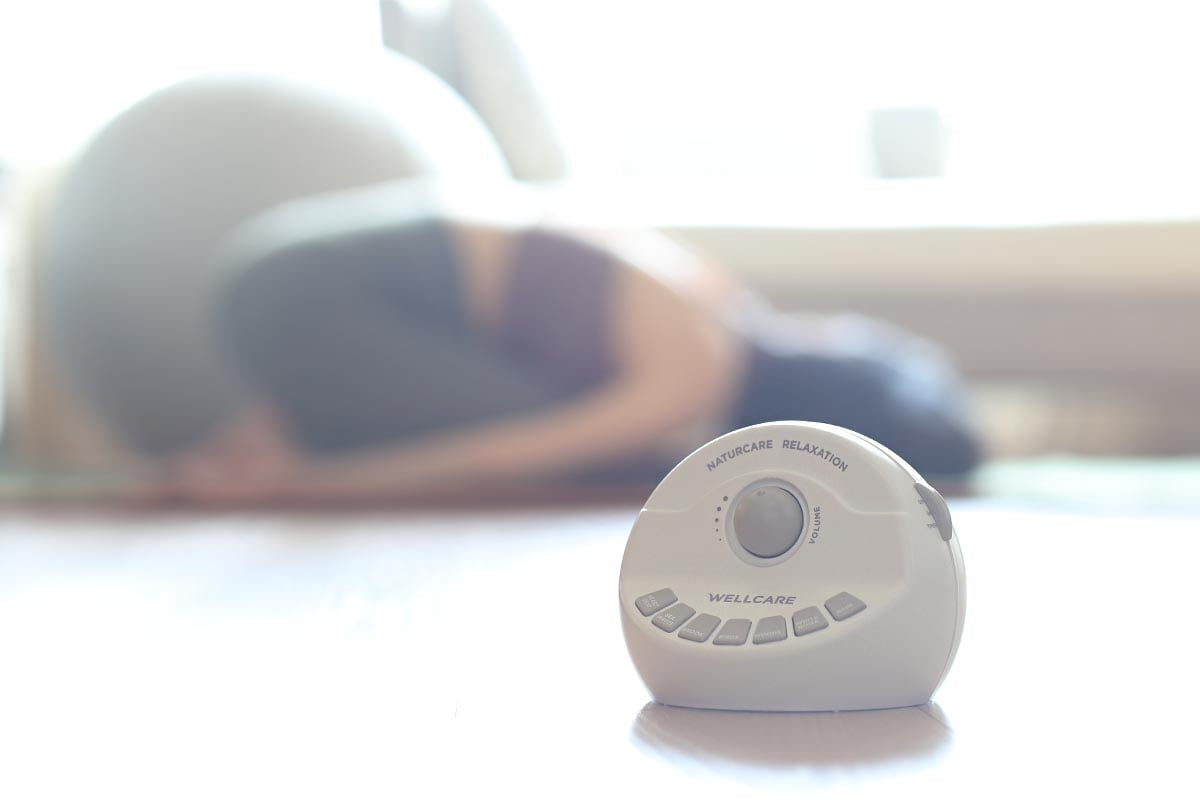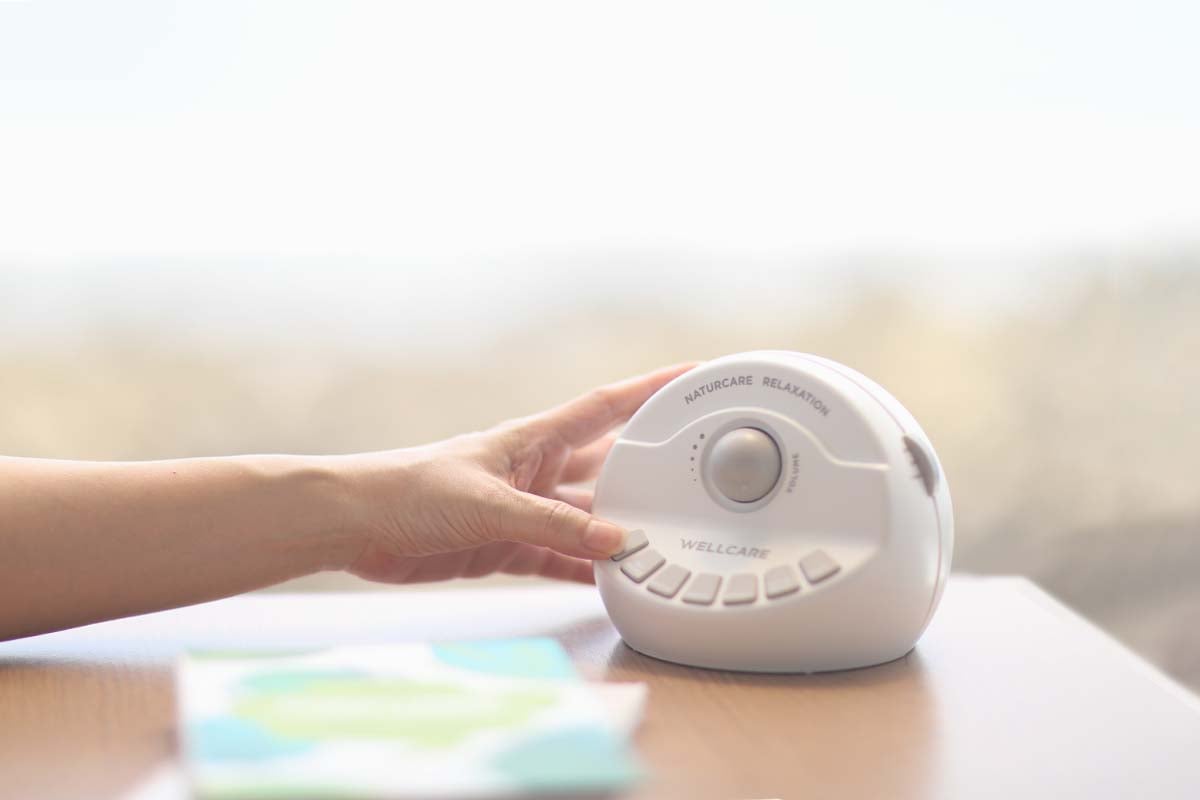What causes COVID tinnitus and does it go away? Learn how COVID 19 can cause tinnitus, and what experts have to say about the management of the condition.
What is tinnitus? Does COVID-19 cause tinnitus?
Have you ever experienced a constant ringing in your ears lasting for extended periods? You might be experiencing tinnitus, which is the term used to describe the instance when we hear sounds that come from inside your body, rather than from an outside source. This constant ringing often lasts for extended periods and, in some chronic cases, can last for several years. Some people may also experience the sound as whooshing, buzzing, or roaring.
COVID-19 and Tinnitus
The COVID-19 pandemic forced all of us into staying in our homes, creating a form of isolation from loved ones and our external source of support. For people suffering from tinnitus, the physical and emotional stress manifested itself in more advanced tinnitus symptoms.
In another study, results show that COVID-19 increases anxiety levels for sufferers. The stress, if not managed, can lead to a significant increase in tinnitus severity. Such anxiety can trigger or magnify other tinnitus symptoms.
Types of Tinnitus
Tinnitus is a unique experience for everyone. For some, simple head movements will make the sound disappear, while others experience life-debilitating tinnitus that can pose serious challenges for day to day tasks.
Frequently, Tinnitus is often mistaken for Hyperacusis, which is a hearing disorder that causes a low tolerance for sound. Tinnitus is different from Hyperacusis in such that the former is occurring or manifests without auditory expression, and the latter is an over-sensitivity to noises in the immediate environment.
To better understand tinnitus, let’s classify them into different types.
- Pulsatile tinnitus :
This is a rhythmic noise you hear in your head, usually can be similar to the sound of your heart beating. It usually occurs due to blood flow changes near the ear.
- Subjective tinnitus :
is the most common variant, with subjective symptoms being heard and affecting the individual, usually through exposure to excessive noise. This type of tinnitus usually occurs on and off and lasts for 3-12 months. In some severe cases, tinnitus may never stop. - Objective tinnitus :
A rare tinnitus type, involuntary muscle contractions, or vascular deformities are the main cause. It is the only type of tinnitus that can be heard by an external agent and the only type that can be fixed. - Neurological tinnitus :
A disorder-induced tinnitus, such as Miniere’s disease, usually affects the brain’s auditory functions. - Somatic tinnitus :
A tinnitus variant related to the sensory system. A form of tinnitus caused, worsened or related to the sensory system.
Some Facts About Tinnitus
Recently, reports indicate that tinnitus can become a result of COVID-19. Dr Sarah Sydlowski, AuD, PhD, MBA, makes an analogy to tinnitus when a person loses a limb and experiences phantom pain. Dr Sydlowski says that the body is missing the function that the part provides and is still expecting it.
In another study conducted between 2010 to 2016, with a sample size of 109, 783 adults, the results yielded a standardised incidence rate of 25.0 per 10,000 person-years. This means there was a steady increase in tinnitus cases during the study period. Results also show that about 80% of tinnitus cases were diagnosed at 40 years or older.
While the National Library of Medicine’s research indicates no universal definition of tinnitus prevalence in Europe, it also shows that it is due to inconsistent research methods. According to a multi-country cross-sectional population study, out of an 11,427 sample size (above 18 years of age), the prevalence of tinnitus was 14.7% (5404 in men and 6023 in women). The results were stratified. Using a European Tinnitus Survey (ETS), a Pan-European estimate for tinnitus prevalence was taken from 12 European Union nations (Bulgaria, England, France, Germany, Greece, Ireland, Italy, Latvia, Poland, Portugal, Romania and Spain). The same was taken using a standardised set of tinnitus-related questions and response options in country-specific languages.
The results suggest an 8.7% (994.149) prevalence rate in Ireland and a 28.3% (3233.841) rate in Bulgaria. Severe tinnitus was found in 1.2% of participants (1.0%, 114.27 in men and 1.4%, 159.978 in women), ranging from 0.6% (68.562) in Ireland and 4.2% (479.934) in Romania. Tinnitus prevalence significantly increases with age and the advancement of hearing loss. The need for healthcare resources for tinnitus increased parallel to the increasing rate of tinnitus severity.
How Crista dealt with COVID-19 Tinnitus
Crista has been suffering from COVID-19 for a week. After testing positive for the virus, she noticed most of her symptoms diminishing after a few days, with the exception of one: a sound inside her head that she says her little five-year-old doesn’t hear.
She mulled over the premise of the infection and how it has been difficult for her to taste, smell, or hear anything. She’s seen the different symptoms as shown in the news.
Although off-putting, she hasn’t heard of a symptom that suggested that COVID-19 can cause temporary hearing loss. Her husband has had a fever for days now, a sore throat, dry mouth, a dry cough, but he’s never had the symptom of a whooshing sound passing briskly in between his ears like she’s had.
Crista wracked her brain, and she can’t remember when the sounds started appearing. She remembered now that it was after her fever broke and later that evening, a whooshing had started to develop into a slight buzzing in her head. Even two weeks later, she wonders when the annoying sound will go away.

Crista hopes that the annoying sounds will go away.
She called a friend-recommended Otolaryngologist about the sounds, and he tells her that she has tinnitus on the day of her appointment. Tinnitus - she repeated the word in her head as the continuous whooshing distracted her from the doctor’s words. He gave her multiple options for treatment, but one stood out to her. She was given a tinnitus retraining therapy (TRT) plan to address the tinnitus and told to observe if it goes away. She observes the doctor’s prescription and finds her tinnitus slowly fading in a matter of weeks.
Wellcare’s Naturcare Sound: Tune in to Nature while Tuning out Tinnitus
Tinnitus management is all about self-care and staying mindful of the present. This has proven to be harder said than done. Despite this, advancement in technology has proven this to be achievable. Wellcare’s Naturcare Sound technology features seven different sounds that mimic the relaxing sounds of nature. Enjoy the calming sounds of nature with our technology which include heartbeat, sea waves, running stream, birdsong, woodland glade, falling raindrops or simple white noise. Naturcare Sound helps manage tinnitus and augments an already prescribed treatment plan by an Otolaryngologist, medical practitioner or doctor. Our devices should be used as a form of management for tinnitus and should not, in any case, be used as treatment or diagnosis. It is best to consult with a physician for a prescribed treatment plan for tinnitus. Be mindful of the present and overcome your tinnitus with Wellcare’s Naturcare Sound.

The Naturcare sound from Wellcare produces peaceful noises that help your body relax.
Sound Masking and Tinnitus Management
Sound masking is often used as a method of tinnitus management, devices include hearing aids and sound amplifiers. These devices may help with amplifying or improving certain sounds, however, do not restore normal hearing completely. Masking however is a different approach, helping manage annoying tinnitus noises through relaxing sounds heard through the device.
Cognitive behavioural therapy is an approach to tinnitus management that involves helping the patient change his attitude towards his tinnitus and has proven to be helpful when combined with sound therapy.
Research suggests no known side effects of using sound masking as a means of tinnitus management. In the Linköping University study, six trials were conducted with 533 participants. No significant change was found in the overall severity of tinnitus as compared to other therapies such as
- Relaxation techniques
- Tinnitus coping strategies
- Counselling
- Tinnitus retraining therapy
- Tinnitus coping strategies
- Exposure to environmental sounds
Results showed that no side effects had been reported when using sound-creating devices such as Naturcare Sound. Although the data from the study appear to be limited and reflect there is a low efficacy for sound therapy strategies, no scientific finding to date has shown negative effects for making use of the method. There is further need to conduct research and study to establish sound therapy as an effective means for tinnitus management.
What’s the difference between hearing aids and sound amplifiers?
The most common misconception about hearing aids is that they amplify all sounds. This is not always the case. Hearing aids are programmed specifically to a person’s needs, meaning the hearing aid will adjust the sound frequency that the person struggles to hear. This ensures that the person hears the correct volume at the proper frequency.
Hearing amplifiers do not require a prescription and require no visit to a hearing aid professional to acquire them. Prices vary for these devices but are significantly cheaper than their hearing aid counterparts. Hearing amplifiers don’t work like hearing aids, these devices are designed to amplify sounds rather than crystallise them. Because of this, such devices help in amplifying particular sound registers.
Meanwhile, hearing aids require audiological evaluation and prescription. This means the prescription should be specifically designed for the patient’s needs. Hearing amplifiers might be a good precursor to use before trying a hearing aid. Sound amplifiers can help people without hearing loss hear faraway sounds. This is why bird watchers use them. Sound amplifiers might be a good first step for some people experiencing the onset of hearing loss.
It’s important to never confuse hearing aids or sound amplifiers with OTC or over-the-counter hearing aids. OTC hearing aids do not require a prescription and may be assigned to correct hearing loss. Another advantage of a hearing aid is that it provides better hearing quality, and has a range of functionalities that most hearing amplifiers lack. These include
- Tinnitus relief
- Digital noise reduction
- Wind noise reduction
- Bluetooth capability
- Artificial intelligence
- App connectivity for the wearer and for others such as caregivers
Sound Therapy, Practicable Options in the Management of Tinnitus
There are different sound therapies to consider in the management of tinnitus. Aside from sound masking techniques, there are other advanced therapies that may give patients more relief.
Acoustic Coordinated Reset (CR) Neuromodulation
Targets a specific and explicit pathological neural synchrony that may be responsible for tinnitus generation. Patients are required to listen to sequences of tones presented at a low volume over open-fit headphones for up to eight hours a day.
Sound Machine
Developed in the UK and the United States, this machine is used as a serenade device that delivers programs of sounds that are cortically interesting and create high levels of synchronous cortical responses. It is introduced using a lightweight sound machine to deliver music through headphones in a two-step process. Recommendations on usage time of the device varies depending on different studies and viewpoints.
These portable machines sit on the bedside or tabletop and provide a choice of soothing sounds at the touch of a button. You can adjust the volume to suit your hearing. There is also a timer on them to switch off once you are asleep. Most can be run from either the mains or battery power. One of the devices runs on a two-step process, another one with a ball appearance mimics the natural sounds and a simple knob to adjust the volume.

By clicking the button on Wellcare's Naturcare sound relaxation, you can select different natural sounds.
Hearing Aids
Hearing aids amplify external sounds, reducing the tinnitus perception and the external sounds. This helps reduce the tinnitus manifestation, it can help refocus attention on sounds that are different from the tinnitus sound. It is also hypothesised that hearing aids serve as a form of sound enrichment.
Wearable White Noise Generators
Studies show that the efficacy of white-noise generators or sound generators and maskers indicates little current evidence of its effectiveness. Studies show that it appears that sound masking is no more effective than education or relaxation training. When recorded, masking did not reflect changes in tinnitus quality. The reason for tinnitus quality change occurring is more due to habituation rather than modulation.
Conclusion
Sound therapy is a good option to have to augment your existing tinnitus treatment plan. Achieving a well-cared-for lifestyle is achievable once a person decides to seek medical attention for his tinnitus. There is still cause for hope as there are multiple therapies available to help address tinnitus. Although sound masking alone will not significantly change the tinnitus sound, or diminish its manifestation, it is a good method to use in conjunction with other forms of treatment. Wellcare recommends that in the use of sound masking therapy, one modulates the volume level of the sound to prevent hearing loss or hearing issues.
Disclaimer
Wellcare’s advice is only supplemental to a prescribed approach for tinnitus treatment from a licensed medical practitioner. Our devices should not be used, treated or utilised as a form of treatment or treated as medical equipment. Always consult with a licensed medical practitioner.
Immerse yourself with the gentle sounds of nature with Wellcare’s Naturcare Sound. Forgetting the agony of uncomfortable sounds through distraction. It helps you manage and deal with COVID-induced tinnitus. With seven soothing and relaxing sounds of nature which include heartbeat, sea waves, running stream, birdsong, woodland glade, falling raindrops or simple white noise, eliminate that annoying tinnitus sound for a holistic and well-cared-for lifestyle. Learn more about our sound relaxation technology and if it’s suitable for you.


.png?width=512&name=united-kingdom%20(1).png)


